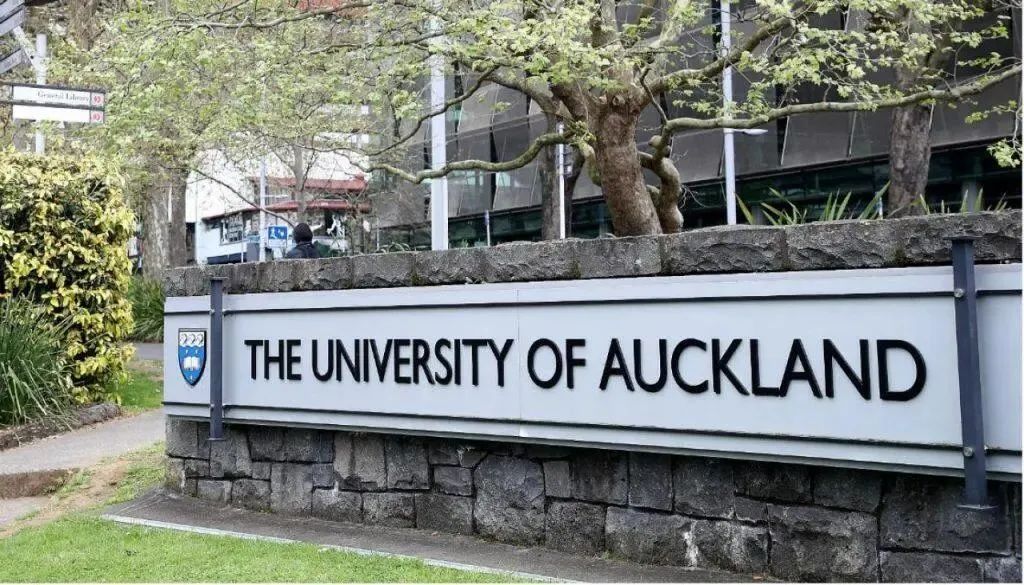本期为大家推荐帝国理工学院、奥克兰大学2024最新奖学金介绍。
1、帝国理工学院
The impact of microglia on dopaminergic synapses in Parkinson’s disease
Imperial College London| Department of Brain Sciences
博导:Dr N Skene, Dr Anna Mallach
截止日期:June 17, 2024 周一
资助的博士项目(全球学生)
About the Project
Applications are invited for a 3.5-year funded PhD studentship in the group of Dr Anna Mallach in the Department of Brain Sciences, commencing during 2024/25 for a project to study
The impact of microglia on dopaminergic synapses in Parkinson’s disease
The project is based at Imperial’sWhite City Campus, the Hub for convergent research. The candidate will be under the supervision of Dr Anna Mallach, Edmond J Safra Research Fellow in theDepartment of Brain Sciencesand will benefit an active and engaged postgraduate community at Imperial and within the UK Dementia Research Institute(UK DRI) at Imperial.
Dementia is the greatest health challenge of our century.
Today, over 1 million people in the UK are living with dementia and related neurodegenerative disorders, such as Alzheimer’s, Parkinson’s, and motor neuron disease (MND). The impact of these incurable and progressive conditions on individuals and their families is devastating. The cost to the economy and public services is large and growing as the UK population ages.
However, due to major advances in our understanding of the biology of these diseases, the scientific field is at a tipping point, with the next decade promising to deliver transformative breakthroughs in therapies and a new era of predictive, preventative, and precision medicine for neurodegenerative conditions.
The laboratory
The lab, led by Dr Anna Mallach, focusses on understanding the role of microglial functions on neuronal health and degeneration in Parkinson’s disease. The lab studies Parkinson’s disease using induced pluripotent stem cells and human tissue from patients.
Background: Parkinson’s disease is a neurodegenerative disorder where dopaminergic neurons degenerate and die. A major challenge to preventing and treating Parkinson’s is understanding why these neurons in particular are so vulnerable to neurodegeneration. Microglia support the health and functions of neurons through a variety of processes including through the secretion of signalling molecules and by the active phagocytosis of synapses. Research from other neurodegenerative disorders has shown that microglia excessively phagocytose synapses at early disease stages, which may play a role in the development of neurodegeneration.
The contribution of microglia to Parkinson’s disease remains understudied, but recently sequencing datasets have described the presence of aberrant microglia transcriptomic states in Parkinson’s. To further understand the implication of microglial changes in Parkinson’s disease, it is important to relate these transcriptomic changes back to microglial function and most importantly, the effect microglia have on neuronal health and degeneration.
The Project: Study the impact of microglia on dopaminergic synapses in Parkinson’s disease.
This PhD project is focused on resolving how the interaction between microglia and dopaminergic synapses is altered in Parkinson’s disease and the potential effect this could have on synapse loss in the disease. The candidate will examine the level of microglial phagocytosis and characterise how the cell states of microglia vary depending on their relative location to degenerating dopaminergic synapses in tissue from patients with Parkinson’s disease. This information will be paired with data from publicly available transcriptomic datasets and bioinformatic analyses performed to propose alterations in microglial functions which may underlie Parkinson’s disease. Support to learn the needed bioinformatic analyses will be provided.
The findings from these analyses will be validated in anin vitrosystem using induced pluripotent stem cells where the functional relationship between microglia and dopaminergic synapses can be studied in more detail. Here the ability of microglia to phagocytose synapses or support synapses through secretion of molecules can be studied in more detail and modified to potentially rescue excessive loss of synapses and loss of neuronal signalling.
Studentship details and application process
The studentship provides a tax-free annual bursary (£25,570) and tuition fees at the UK/Home rate (currently £7030/year). Applicants should hold (or attain by October 2024) a First Class or an Upper Second-Class degree (or equivalent overseas qualification) in biological science, such as neuroscience. Imperial would normally expect successful applicants to hold or achieve a Master’s degree in a related field. You will benefit from membership of the Graduate School and an active early career research community. Prior experience in wet-lab biology, particularly cell culture and staining, will be highly beneficial.
For informal enquiries please contact Dr Anna Mallach (a.mallach@imperial.ac.uk). For application, please send a full CV, and contact details for two academic referees to
a.mallach@imperial.ac.uk. Applications will be considered on a rolling basis with a final closing date of 17 June 2024.
2、奥克兰大学
Managing traumatic wounds in zero gravity.
University of Auckland|School of Biological Sciences
博导:Prof Anthony Phillips
截止日期:June 16, 2024 周天
资助的博士项目(全球学生)

About the Project
Invitation:
Applications are now invited for a fully funded, multidisciplinary, PhD position in applied microgravity biomedicine and engineering at the University of Auckland.This project aims to develop a new technology for assisting wound care management in microgravity and long duration spaceflight.
Scope:
As the specter of sustained living and traveling in microgravity (space) becomes the reality, we need to be prepared for managing accidents and trauma in this unusual living environment. This is a Ministry of Business Innovation and Employment (MBIE) Smart Ideas funded PhD position for an engineering project with a direct medical application component.It would suit a strongly motivated candidate with an interest in applying engineering solutions to biomedical, microgravity and space travel problems.The project is directed at developing a new solution for wound care management during long duration spaceflight.The candidate will be expected to research, extend and refine an early concept design before proceeding to build and test a definitive fully functional working solution.
The project will be a good fit for someone with an engineering background and an interest in space exploration and/or medical biotechnology.Detailed medical/biological knowledge is not required but is of course an advantage.The engineering aspects will require application of skills developed during standard undergraduate courses in the bioengineering, mechatronics and mechanical engineering disciplines.We welcome applications from these but also other related discipline areas.
The successful candidate for this multidisciplinary project will work at the University of Auckland in both the Auckland Institute of Bioengineering (ABI) and School of Biological Sciences within the Faculty of Science. The project is under the supervision of Prof. Anthony Phillips (Translational Surgical Research Scieince), Prof Poul Nielsen (Bioengineer; ABI), with active mentorship by Prof John Windsor (Academic Surgeon), and Dr Lisa Brown (Aerospace Surgeon).
Project:
-
Take an existing concept direction to confirm, extend and refine its design.
-
Develop appropriate testing wound phantoms for evaluating the technology.
-
Develop the design of the device.
-
Fabricate the prototype device to test and refine it.
-
Collaborate with a multidisciplinary team of clinicians, engineers and scientists
Qualifications:
-
A strong Bachelor with Honors, or Masters degree.
-
Check your eligibility to take a PhD at The University of Auckland athttps://www.auckland.ac.nz/en/study/applications-and-admissions/entry-requirements/postgraduate-entry-requirements/doctoral-entry-requirements.html
-
It is expected the most relevant background disciplines are bioengineering and mechatronics, although mechanical engineers and other non-engineering disciplines are welcome to apply if you think you have relevant skills.
-
Some working familiarity with Fusion or CAD is a requirement.
-
Basic skills in software programming and simple electronics are an advantage
-
A basic understanding of biological principles is an advantage.
-
Excellent communication skills in English, both written and spoken is a requirement.
Scholarship:The successful candidate will be eligible to receive a full funded PhD scholarship for a period of three years (Tuition fees and stipend).
Start Date:ASAP
Application
Applications can be sent directly to the listed supervisor (Professor Anthony Phillips;a.phillips@auckland.ac.nz)
Expressions of interest should include: i) an up-to-date Curriculum Vitae, including summary of your academic record (or just attach academic record transcript); ii) a brief cover letter outlining your interest and suitability for the position.
Deadline:17 June 2024.











